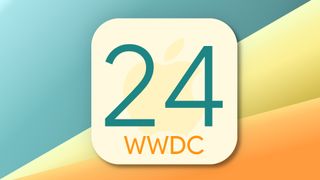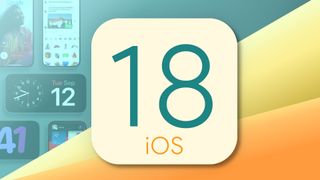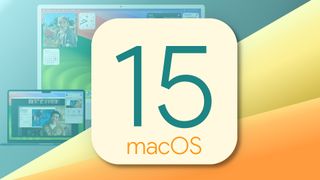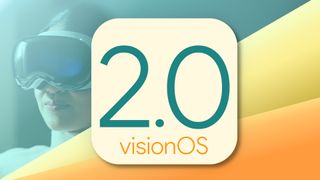WWDC 2024 rumors: Possible dates, major iOS 18 updates, and more
WWDC 2024 might feature Apple's biggest iOS update yet

WWDC 2024 is just a few days away and all of the rumors so far suggest Apple's upcoming developer conference might include some of the biggest software updates we've ever seen.
Much of our information comes from reputable tech leakers and Bloomberg's Mark Gurman, who says Apple believes iOS 18 will be "one of the biggest iOS updates... in the company's history." Apple has also dropped a slew of references to AI in press releases and events leading up to WWDC, a clear hint at the company's focus for this year's software updates.
While we might not get another major hardware announcement like we did last year (we're looking at you, Vision Pro), there's still a lot to look forward to at WWDC 2024.
WWDC 2024: Latest news (Updated 6/7)
- Apple's AI plans will be opt-in but with one potentially alarming drawback | Just days before WWDC 2024, a leak unveiled some crucial new details about "Apple Intelligence"
- New accessibility features offer first glimpse of iOS 18 and iPadOS 18 | Apple announced a handful of new accessibility features for iPhone and iPad that could be part of iOS 18 and iPadOS 18
- Apple announces iPad Pro M4 and iPad Air M2 at May event | Apple unveiled its new M4 chip along with two new iPads at a virtual event ahead of WWDC 2024.
- Apple's WWDC returns on June 10: What to expect and how to watch | Apple officially announced the annual event is coming on June 10.
When is WWDC 2024?
Apple has hosted a WWDC event every year since 1987, and the event has happened in June every year since 2007. This year will be no different with Apple officially announcing it will run from June 10-14, 2024.
Each WWDC event starts with a signature Keynote speech on a Monday and lasts through Friday of the same week.
How to watch WWDC 2024
Typically, only developers and Swift Student Challenge winners can attend Apple's WWDC event in person. If you're part of the general public, you'll have to watch the Keynote speech and the Platforms State of the Union virtually.
To catch either of these major speeches when the time comes, you can head to the Apple YouTube Channel or Apple's WWDC 2024 page. Individual sessions are reserved for those who signed up for the event and won't be broadcast live to the public. Don't worry if you can't watch live — we'll be covering everything Apple announces, so stay tuned and you won't miss a beat.
Stay in the know with Laptop Mag
Get our in-depth reviews, helpful tips, great deals, and the biggest news stories delivered to your inbox.
WWDC 2024: iOS 18

Apple's most notable announcement at WWDC 2024 will likely be its iOS 18 update reveal. According to Bloomberg's Mark Gurman, Apple views this release as "One of the biggest iOS updates — if not the biggest — in the company's history."
This update will include the addition of the RCS text protocol, a more advanced messaging technology than SMS or MMS that's been on Android for years. In short, RCS support will allow typing indicators and read receipts in cross-platform conversations and finally let iOS users send images and videos to Android users without compressing the files into a pixelated mess.
While Apple introducing the RCS protocol is great news for iPhone users, that's not the most exciting update planned for iOS 18. What's going to make iOS 18 the biggest software release ever from Apple is 2024's hottest term: artificial intelligence.
According to Gurman, Apple's SVP of Software Engineering, Craig Federighi, gave an "edict" to the team working on iOS 18 to ensure it's full of "features running on the company's large language model." Apple hasn't been shy recently about shelling out millions of dollars to publishers for AI-training reasons or acquiring AI-related businesses.
With Apple being slow to enter the AI race, we can only hope the final result is highly capable. That may be why Apple is teaming up with industry leader OpenAI, who is reportedly helping Apple develop a chatbot. Unfortunately, OpenAI has been facing a lot of controversy and privacy concerns lately, so hopefully that doesn't hold back Apple's first round of AI features.
Early rumors suggested Apple was working on an AI code named Ajax, thanks to code found in the beta version of iOS 17.4. We now know Apple's AI service will be called "Apple Intelligence" and will launch as an opt-in beta feature on iOS 18 (although it will likely only be compatible with iPhone 15 and later).

Apple Intelligence will include a suite of features like summarizing missed notifications, editing photos, helping with search in Safari, generating replies to emails and texts, and generating custom emojis. Even more important, it will include a long-overdue Siri update.
The new-and-improved version of Siri will be capable of performing more complex tasks, better at understanding speech, include new voice shortcuts, and feature improved integration with third-party apps.
The only drawback to these new AI features is processing power. Since Apple is aiming to keep as many AI features on-device as possible, Apple Intelligence will likely only be compatible with the most recent devices. The iPhone 15 Pro will almost definitely be compatible, but the base iPhone 15 may also be eligible. However, older iPhones likely won't have the necessary processing power to run Apple Intelligence.
It's also worth noting that current rumors indicate not all of these AI features will run completely on-device. Some may require Apple to transfer data back and forth between data centers running M2 Ultra chips.
While that's a bit of a break from Apple's usual strict privacy practices, Apple will likely go to extensive lengths to make sure any AI features that require cloud computing are well-protected against hackers. Apple could end up using security protocols similar to those already in use for iCloud and would likely also keep any personally identifying data on users' devices no matter what.
WWDC 2024: macOS 15

In addition to iOS 18 and iPadOS 18, we're also expecting to get a look at macOS 15 at WWDC 2024. Mac software updates usually roll out in the fall, but Apple will likely unveil it at WWDC alongside their other big updates. While rumors about macOS 15 have been pretty quiet so far, we do have a few hints already.
Apple names its macOS updates after California landmarks and already has well over a dozen trademarked. So, there's a shortlist of potential names to keep an eye out for:
- Diablo
- Condor
- Tiburon
- Farallon
- Miramar
- Rincon
- Pacific
- Redwood
- Shasta
- Grizzly
- Skyline
- Redtail
- Sequoia
- Mammoth
It's still unclear how AI will impact macOS 15, but current rumors do indicate there will be some UI and quality-of-life updates to key stock apps. The System Settings app is getting a minor overhaul with settings reorganized based on importance. Several apps, like Safari and the Calculator app, are also rumored to be getting some visual changes.
Rumors have also hinted at which Macs will not receive macOS 15. The models potentially losing support this year notably include many of the last Intel-based Macs Apple released. You won't have to worry as long as you have a fairly recent Mac model, though. Here are the models we expect will receive macOS 15:
- Macbook Air (2019 or newer)
- MacBook Pro (2019 or newer)
- iMac (2019 or newer)
- iMac Pro (all models)
- Mac mini (2020 or newer)
- Mac Pro (2019 or newer)
- Mac Studio (all models)
It's important to note that not every Mac that receives macOS 15 will be compatible with Apple's new AI features. Due to the high processing power required for on-device AI, only M-series Macs will be eligible for the new "Apple Intelligence" service. That said, all of the M-series Macs will likely be compatible, including the older M1 series. So, if you have one you should be able to opt-in for Apple Intelligence when the first beta version of it launches.
WWDC 2024: visionOS 2

Apple's much-anticipated Vision Pro headset was announced last year at WWDC 2023, and it just released in early February, so the chances of Apple announcing the Vision Pro 2 at WWDC 2024 are incredibly slim. However, we might get a glimpse of how Apple plans to improve the headset with visionOS 2.
The operating system the headset launched with—simply named visionOS—has been praised by reviewers for some features and criticized for others. A mere four-month span between the Vision Pro's launch and the announcement of visionOS 2 might seem too quick, but it's entirely possible.
In fact, Apple has already unveiled that visionOS is getting some new accessibility features, including live captions. We could also see some of Apple's in-house apps for the headset get dedicated visionOS versions, rather than ports of the iPadOS apps.
Announcing visionOS 2 with some cool new features might renew hype for the headset by the time the updated OS rolls out in September. And considering many Vision Pro owners returned the headset shortly after trying it out, the sparkle of a new OS might be just what Apple needs for its Vision Pro sales.
WWDC 2024: Other software updates
At WWDC, each of Apple's devices usually receives a new software release. Some contain small quality-of-life improvements, while others might include bigger changes, like UI redesigns.
iOS 18 will probably be the headliner for WWDC 2024, decked out with major new features and AI capabilities for iPhone users. Some iOS 18 features, especially the AI-related ones, are likely going to show up in iPadOS 18 as well.
Unfortunately, that also means we're expecting Apple to drop support for several older iPads that won't be capable of running these new AI features. Apple has kept things pretty quiet surrounding iPadOS 18, though, so we'll have to wait and see when it's officially unveiled.
Apple did give some hints about what might be in store for iPadOS 18 at a virtual event on May 7. The event included the reveal of the M4 chip, a new iPad Pro, a redesigned Magic Keyboard, the Apple Pencil Pro, and a refresh for the iPad Air. Apple emphasized AI capabilities in the M4 announcement, so we can expect AI features to be a major focus in iPadOS 18. Plus, new controls in the Apple Pencil Pro may open the door for some cool features like Pencil shortcuts.
We haven't heard much about watchOS 11, either, but the Apple Watch X—which reportedly boasts a huge redesign—will probably be one of the first new smartwatches with this OS. Similarly, rumors on tvOS 18 are pretty quiet.
WWDC 2024: Any new hardware?
WWDC is a software-oriented event, first and foremost, and with last year's conference including a few major hardware announcements, we're thinking this year's WWDC might be more software-heavy.

In 2020, the only hardware-related announcement was Apple transitioning to Silicon chips in MacBooks, and WWDC 2021 focused solely on software announcements. A few hardware refreshes debuted at WWDC 2022, like the revised MacBook Air and an updated M2 chip.
At WWDC 2023, we saw Apple introduce a 15-inch MacBook Air, the M2 Ultra chip, and the company's event showstopper: the Vision Pro headset. However, that was an anomaly.
It's unlikely Apple will announce any significant new hardware at WWDC 2024, especially after it just revealed new iPads in May. New Macs are also unlikely. While the Mac line-up is due for a refresh now that the M4 chip is out, it hasn't been a year yet since Apple released the M3 MacBooks. We're not expecting to see M4 Macs until late 2024. That said, it is possible Apple could show off the M3 Ultra chip at WWDC, which is rumored to boast outrageous power but hasn't appeared in any Macs yet.
Bottom line
So far, it's looking like WWDC 2024's shining star will be iOS 18. Rumored to be an incredibly AI-heavy update, iOS 18 will probably roll out on previous iPhones as a cloud-based version, but it'll truly shine on the iPhone 16. Apple will likely wait until its September event to announce the iPhone 16, which could include on-device AI capabilities that'll mesh better with iOS 18.
Along with iOS 18, we should also see new versions of Apple's other operating systems. Plus, Apple might debut an M3 Ultra chip, which could be twice as powerful as the M3 Max chip.
We will be covering WWDC 2024 live starting on June 10, so make sure to stay tuned for an in-depth look at everything Apple announces.
- Stevie BonifieldFreelance Writer
